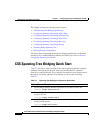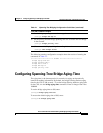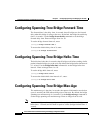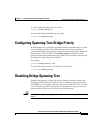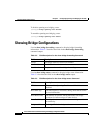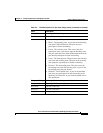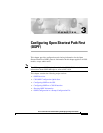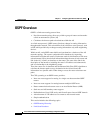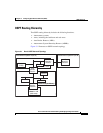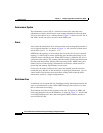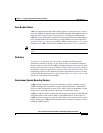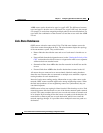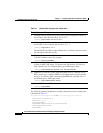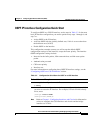
Chapter 3 Configuring Open Shortest Path First (OSPF)
OSPF Overview
3-2
Cisco Content Services Switch Routing and Bridging Configuration Guide
OL-4580-01
OSPF Overview
OSPF is a link-state routing protocol that:
• Provides network topology discovery within a group of routers and networks
called an autonomous system (AS)
• Calculates the shortest path to destinations within the AS
As a link-state protocol, OSPF routers flood any change in routing information
throughout the network. This action differs from a distance vector protocol, such
as RIP, which periodically exchanges routing information only with neighboring
devices.
Within an AS, each OSPF router builds and synchronizes a database of the AS
network topology. The routers synchronize their databases by requesting
information from other AS routers. Each router sends its information as link-state
advertisements (LSAs) that include information about the state of each router and
link in the AS. A link is an interface on the router. The state of the link is the
description of the interface, including the router’s IP address and subnet mask,
and its relationship to the neighboring router.
Then, the router uses its database and the Shortest Path First (SPF) algorithm to
calculate the shortest path to every destination in the AS and stores this
information in a dynamic table. When changes occur, the router calculates new
paths.
The CSS, operating as an OSPF router, provides:
• Intra-area route support for routing in a single area between other OSPF
routers
• Inter-area route support for routing between multiple OSPF areas
• Route summarization between areas as an Area Border Router (ABR)
• Stub area and AS boundary router support
• Redistribution of local, RIP, static, and firewall routes into an OSPF domain
• Advertisement of VIP addresses for content as AS external routes
• Simple authentication
This section includes the following topics:
• OSPF Routing Hierarchy
• Link-State Databases



